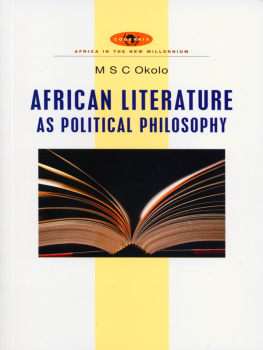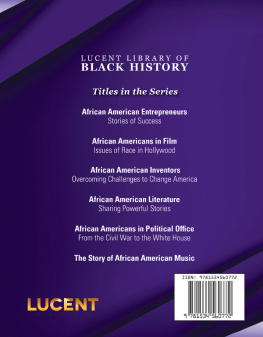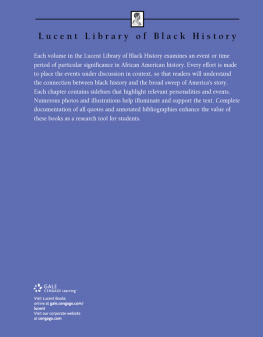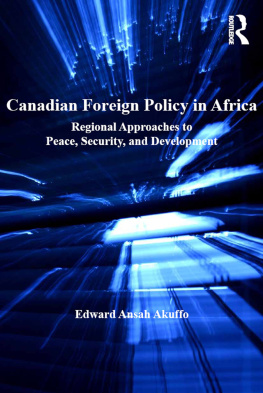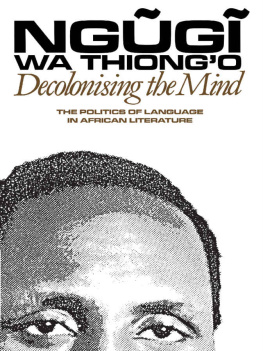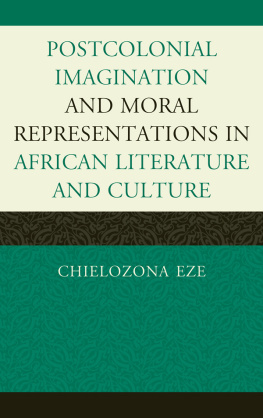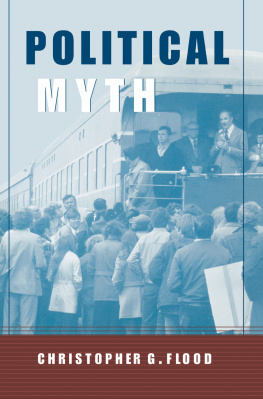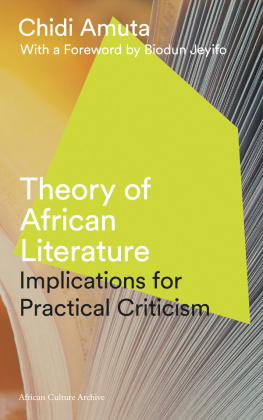
Africa in the New Millennium
ABOUT THIS SERIES
The books in this series are an initiative by CODESRIA, the Council for the Development of Social Science Research in Africa, to encourage African scholarship relevant to the multiple intellectual, policy and practical problems and opportunities confronting the African continent in the twenty-first century.
CODESRIA in association with Zed Books
Titles in the series:
African Intellectuals: Rethinking Politics, Language, Gender and Development edited by Thandika Mkandawire (2005)
Urban Africa: Changing Contours of Survival in the City edited by A. M. Simone and A. Abouhani (2005)
Liberal Democracy and Its Critics in Africa: Political Dysfunction and the Struggle for Social Progress edited by Tukumbi Lumumba-Kasongo (2005)
Negotiating Modernity: Africas Ambivalent Experience edited by Elsio Salvado Macamo (2005)
Africa and Development Challenges in the New Millennium: The NEPAD Debate edited by J. O. Adsn, A. Olukoshi and Yao Graham (2006)
Insiders and Outsiders: Citizenship and Xenophobia in Contemporary Southern Africa Francis B. Nyamnjoh (2006)
African Anthropologies: History, Critique and Practice edited by Mwenda Ntarangwi, David Mills and Mustafa Babiker (2006)
Intellectuals and African Development: Pretension and Resistance in African Politics edited by Bjrn Beckman and Gbemisola Adeoti (2006)
Kenya: The Struggle for Democracy edited by Godwin R. Murunga and Shadrack W. Nasongo (2007)
Ghana: One Decade of the Liberal State edited by Kwame Boafo-Arthur (2007)
African Literature as Political Philosophy MSC Okolo (2007)
About CODESRIA
The Council for the Development of Social Science Research in Africa (CODESRIA) is an independent organization whose principal objectives are facilitating research, promoting research-based publishing and creating multiple forums geared towards the exchange of views and information among African researchers. It challenges the fragmentation of research through the creation of thematic research networks that cut across linguistic and regional boundaries.
CODESRIA publishes a quarterly journal, Africa Development, the longest-standing Africa-based social science journal; Afrika Zamani, a journal of history; the African Sociological Review, African Journal of International Affairs (AJIA), Africa Review of Books and the Journal of Higher Education in Africa. It co-publishes Identity, Culture and Politics: An Afro-Asian Dialogue, and Africa Media Review. Research results and other activities of the institution are disseminated through Working Papers, Monograph Series, CODESRIA Book Series, and the CODESRIA Bulletin.
About the author
MSC Okolo was educated at the University of Calabar, and then at the University of Ibadan where she received her PhD in Philosophy. She also has a PGD in Public Relations. A Civitella Ranieri Fellow, she is the author of Winds on my Mind and Leaps of Faith and has contributed to many short story and poetry anthologies. Her short story Those Days won a Liberty Merchant Bank Prize. Her PhD thesis won the CODESRIA Doctoral Prize in 2005.
MSC Okolo
African literature as political philosophy

Zed Books
LONDON NEW YORK
African literature as political philosophy was rst published in 2007 by Zed Books Ltd, 7 Cynthia Street, London N1 9JF, UK and Room 400, 175 Fifth Avenue, New York, NY 10010, USA
This ebook edition was first published in 2013
Copyright CODESRIA, 2007
The right of MSC Okolo to be identied as the author of this work has been asserted by her in accordance with the Copyright, Designs and Patents Act, 1988.
Cover designed by Andrew Corbett
Set in Sabon and Gill Sans Heavy by Ewan Smith, London
Index: <>
All rights reserved. No part of this publication may be reproduced, stored in a retrieval system or transmitted, in any form or by any means, electronic, mechanical, photocopying or otherwise, without the prior permission of Zed Books Ltd.
A catalogue record for this book is available from the British Library.
US CIP data are available from the Library of Congress.
ISBN: 978 1 84813 604 5
Contents
Acknowledgements
The publication of this book began with the CODESRIA Doctoral Prize (2005) awarded to my thesis: Exploring Literature as Political Philosophy through a Comparative Study of Chinua Achebe and Ngugi wa Thiongo. The present volume retains all the essentials of this thesis, albeit with minor modifications in content and form. I am immensely grateful to CODESRIA for supporting the publication of this work.
The writing of a PhD thesis is dependent on the encouragement and support of many people. While I cannot list all of them, I am deeply grateful to my supervisors Felix A. Adeigbo and, especially, Segun Oladipo, whose comments, criticism and direction were crucially important. I would also like to thank Ngugi wa Thiongo for granting me an interview via the Internet. My colleagues, the late Chris Uroh, Joe Ushie, Tunde Awosunmi, Dom Danjibo, Lwazi Lushaba and Kunle Okesipe, offered helpful comments. I am also grateful to my teachers at the University of Calabar for starting me on a firm foundation.
The kindness of Terry Olowu, Carol Etim and Mrs Usendie made a critical difference to my wellbeing. Oiza Dominic, Perp Agbi, Alex Shenge, Chiaka Anumudu, Ifeanyi Itodo, Uche Nnodu and the Rev. Fathers Chris Oranyeli and Emeka Nwosu were also of great assistance to me.
I am grateful to my brothers and sisters, who have always supported me. I also thank my in-laws, especially my mother-in-law, Christie Nwakaeme, for their encouragement.
My husband Nnadozie Nwakaeme and our little son Chidalu Chukwuekee, through daily acts of kindness and love, made it easy to bring this book to a conclusion, without the strains that ordinarily accompany such projects. My husbands death on 14 November 2006 and our daughter Kaosisochis birth on 29 September 2006 is a difficult balance of sorrow and joy.
I dedicate this book to the memory of my parents, Cecilia Ogbonne Okolo (who died on 15 March 2004 while waiting for me to defend my PhD thesis this is it, Mama) and Felix Aka Okolo, who died on 7 January 1980 believing that I would one day become a medical doctor (I hope this somewhat suffices, Papa).
Abbreviations
| AGOW | A Grain of Wheat |
| AMOP | A Man of the People |
| AOG | Arrow of God |
| ASUU | Academic Staff Union of Universities |
| DOC | Devil on the Cross |
| NASU | Non-Academic Staff Union |
| NEPAD | New Partnership for Africas Development |
| NLAE | No Longer at Ease |
| TFA | Things Fall Apart |
| TRB | The River Between |
| WNC | Weep Not, Child |
In memory of Mama and Papa,
who taught me perseverance,
merit and love for life
ONE
Introduction: a neglected benefit
The recognition that there is an affinity between literature and philosophy and, by implication, political philosophy, is not new. As theoretical disciplines concerned with raising social consciousness, philosophy and literature engage in similar speculation about the good society and what is good for humanity. They influence thoughts about political currents and conditions. They can, for instance, lead the reader to critical reflections on the type of leaders suitable for a given society and on the degree of civic consciousness exercised by the people in protecting their rights. Philosophy and literature, equally, offer critical evaluation of existing and possible forms of political arrangements, beliefs and practices. In addition, they provide insights into political concepts and justification for normative judgements about politics and society. They also create awareness of possibilities for change.
Next page
